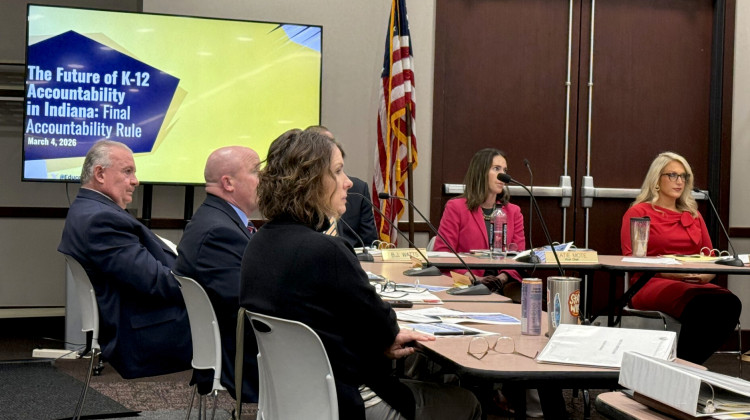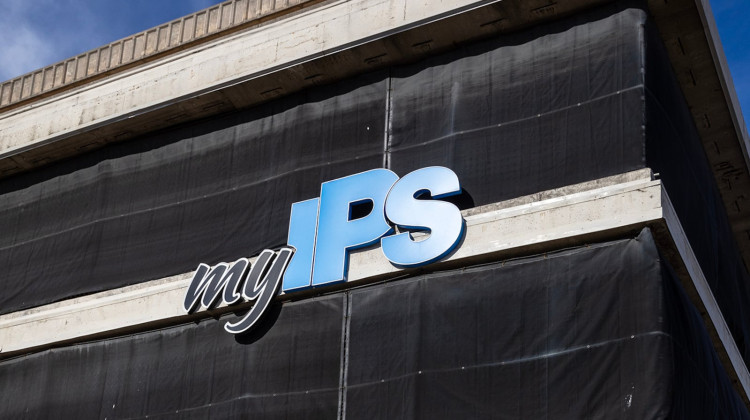Starting when you pay your taxes in 2024, the tax credit available for CollegeChoice 529 plans will increase from $1,000 to $1,500.
(Brandon Smith/IPB News)Tens of thousands of Hoosiers have nearly $7 billion invested for post-high school education as Indiana’s CollegeChoice 529 program marks 25 years since its creation.
An upcoming change will also make it a little easier for parents to save.
Indiana State Treasurer Kelly Mitchell explained that CollegeChoice 529 plan investments are managed by the state as a way for people to save for their children’s education.
“All money that is growing, tax-deferred and all money that can be spent, tax-free, on qualified education expenses,” Mitchell said.
Join the conversation and sign up for the Indiana Two-Way. Text "Indiana" to 73224. Your comments and questions in response to our weekly text help us find the answers you need on statewide issues.
Commissioner for Higher Education Teresa Lubbers said it’s important to note those qualified expenses don’t just mean tuition at a traditional, four-year college or university.
“For public and private education, for technical schools, certificates – it’s a full range of higher education opportunities,” Lubbers said.
And starting when you pay your taxes in 2024, the tax credit available for 529 plans will increase from $1,000 to $1,500 – the first increase since that credit was created in 2007.
Contact reporter Brandon at bsmith@ipbs.org or follow him on Twitter at @brandonjsmith5.
 DONATE
DONATE








 Support WFYI. We can't do it without you.
Support WFYI. We can't do it without you.